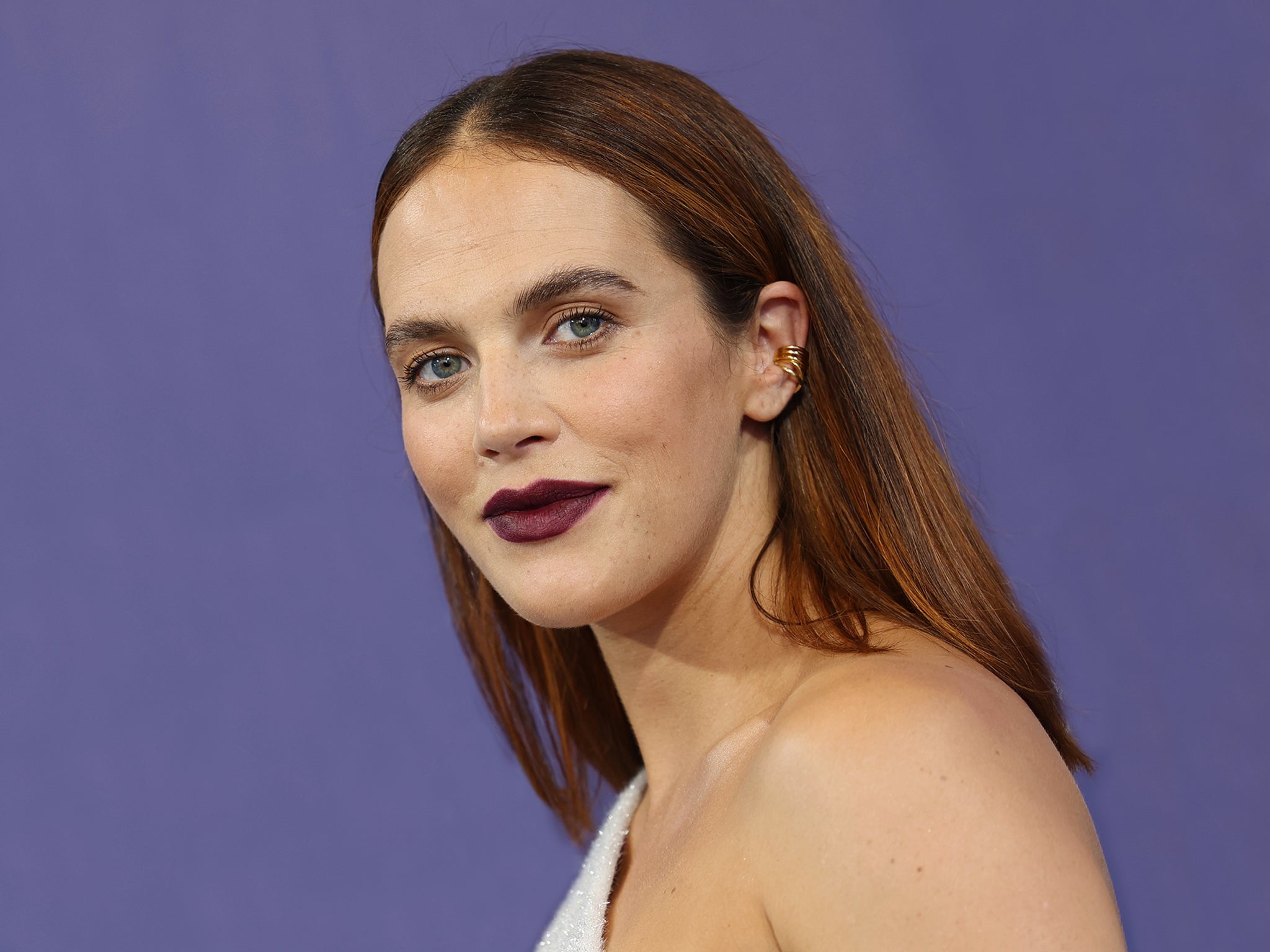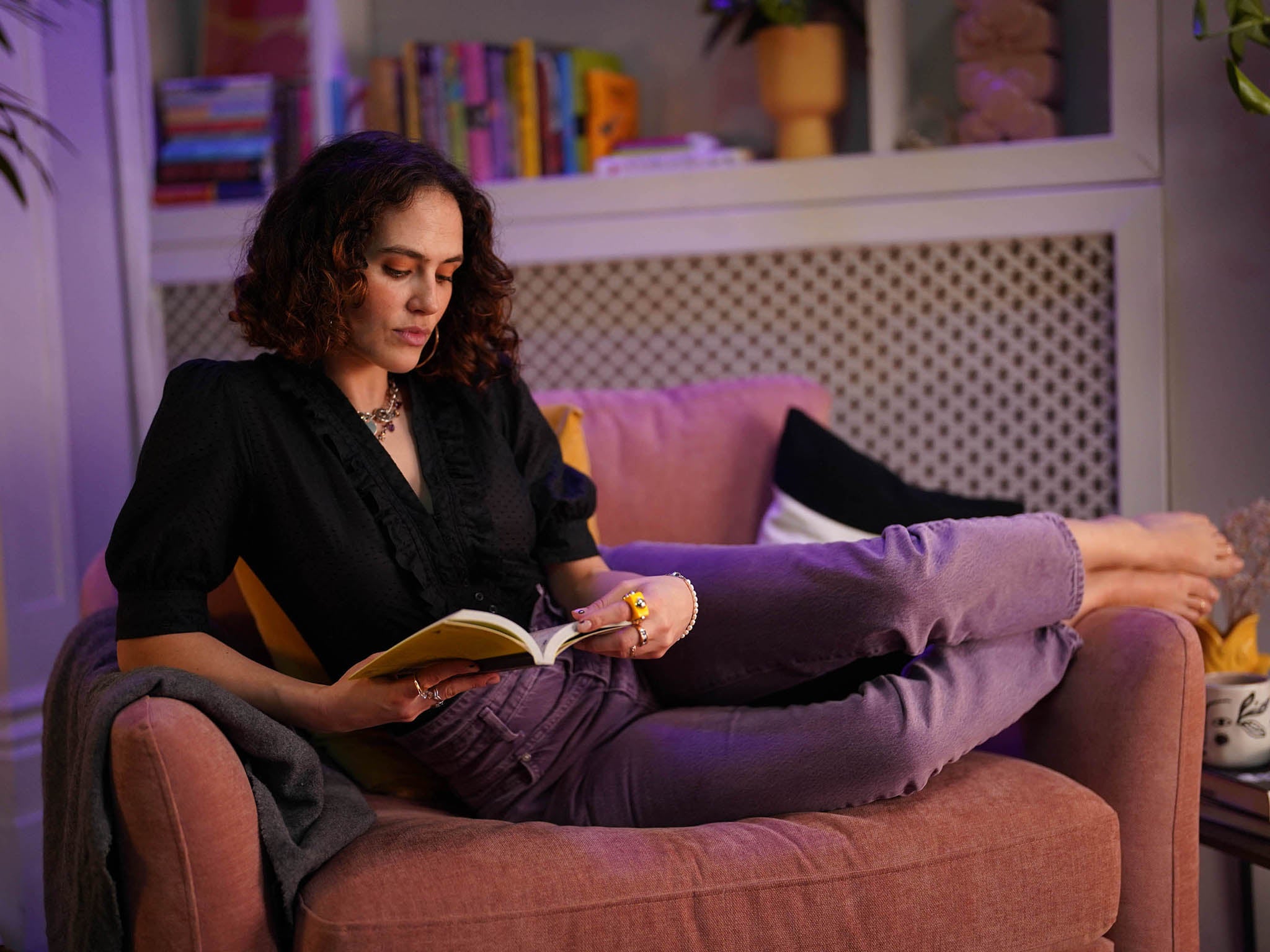Jessica Brown Findlay: ‘I’d never want to do something that means I couldn’t have a normal life’
The actor talks to Nicole Vassell about acting deal-breakers, her new housing-crisis romcom ‘The Flatshare’, the time she annoyed her own flatmates, and the character that saved her


Your support helps us to tell the story
From reproductive rights to climate change to Big Tech, The Independent is on the ground when the story is developing. Whether it's investigating the financials of Elon Musk's pro-Trump PAC or producing our latest documentary, 'The A Word', which shines a light on the American women fighting for reproductive rights, we know how important it is to parse out the facts from the messaging.
At such a critical moment in US history, we need reporters on the ground. Your donation allows us to keep sending journalists to speak to both sides of the story.
The Independent is trusted by Americans across the entire political spectrum. And unlike many other quality news outlets, we choose not to lock Americans out of our reporting and analysis with paywalls. We believe quality journalism should be available to everyone, paid for by those who can afford it.
Your support makes all the difference.Jessica Brown Findlay was a nightmare flatmate. At least, that’s what she remembers of her time as a student, just a few years before a role in Downton Abbey changed her life. Back then, there were no thoughts of having the perfect property, or making lifelong unbreakable bonds with the people you lived with – if it had a bed, it had a chance. “You had to make quite big compromises because there weren’t specific student digs in London,” she says. “You just had to find a group of people in a space with somewhere to sleep and make it work.” Still, the soon-to-be actor was adamant that she’d make the space she was paying extortionate rent for, her own – whether she had the go-ahead of her housemates or not. “I need to make myself at home within a day or two,” she continues. “I put everything up on walls, I put a rug down… yeah, a nightmare.”
This practice of immediately marking her territory is one of a few ways she sees similarities between herself and her character Tiffany in the new Paramount+ series The Flatshare. An adaptation of Beth O’Leary’s 2019 bestselling novel, the six-part romantic comedy introduces us to Tiffany and Leon (Anthony Welsh), strangers who share a one-bed flat and communicate solely through Post-it notes. Their workaround for only having one sleeping space is bizarre but strangely efficient – Tiffany, a freshly heartbroken and unmotivated journalist, has the flat overnight and on weekends, while night-time care worker Leon has the place from 8am to 8pm. This way, they never have to meet and risk things getting awkward.
The novel had all the right ingredients to be an instant hit: a unique concept, loveable characters and a will-they-won’t-they tension to boot. Fans have been feverish for the on-screen adaptation – and on first look, they can rest assured that Tiffany and Leon are in good hands. Though they’re barely on screen together, Brown Findlay and Welsh’s chemistry crackles; it’s not long before you’re willing them to catch each other at the flat and see just what happens next. Still, she admits, the excitement for the series made dipping her toe into the romantic comedy pool all the scarier. “We’re coming in and putting human form to characters that every single person has imagined differently,” she explains. “So there’s a lot of responsibility there, in taking on a role and defining it. People hold those characters very dearly.”
Of course, she has experience of being a much-loved character. As Downton Abbey’s Lady Sybil Crawley, Brown Findlay became one of the most popular characters on television upon its 2010 debut. With only one professional role behind her at the time, the former ballet dancer was suddenly thrust into the spotlight and the living rooms of millions across the world. When Sybil died of post-childbirth complications in season three, the show’s viewership was at its peak, with a weekly average of 11.9 million UK viewers. A decade, three more seasons and two films after her departure, Brown Findlay still has people telling her just how much they appreciated the show, and her role in it. Luckily, it doesn’t get old.
“I love that people still watch it,” she shrugs, her hands resting atop her own pregnant belly. “Someone messaged me the other day to be like, ‘I’ve started rewatching Downton in my paternity leave and it’s making me think of me and my mum watching it on the sofa having tea.’ That’s so lovely. As an actor, I’ve learnt that when you make work, you’ve just got to enjoy that bit between ‘action’ and ‘cut’, because anything can happen afterwards: people could love it or hate it. It could go into the stratosphere, or no one could watch it. But the idea that years later, there’s something that resonates, and people are enjoying a character you played, it’s really touching.”
Brown Findlay grew up in the village of Cookham in Berkshire, famously the home of the painter Stanley Spencer, before she moved to London to study fine art at Central Saint Martin’s. Post-Downton, Brown Findlay had taken on roles in mini-series such as Labyrinth, Jamaica Inn and The Outcast, and an episode of Black Mirror co-starring Daniel Kaluuya in a warped tale of an X Factor-esque singing competition. Yet, the positives of being a public figure weren’t without drawbacks.
In 2014, Brown Findlay, Jennifer Lawrence and Kirsten Dunst were among more than a hundred celebrities who were subject to a hacking scandal that saw intimate photos and videos leaked online. Brown Findlay went on to speak out about the need for greater policing of cybercrime, along with the effects that such an invasive incident can have on a person. “There is something about the shock of something like that, and the complete inward spiral that happens when you’re violated in that way [that] is so difficult to explain,” she told The Telegraph in 2020. “It definitely intensified where I was at that point in my life.”

Now, she notes how a role in Robert Icke’s version of Chekhov’s Uncle Vanya at London’s Almeida Theatre pulled her out of an emotional rut in 2016. “There was this beautiful moment at the end, every night, when Sonya stood on this chair and said, ‘We’re going to get through this, we’re just going to keep living and we’re not gonna give up. It’s going to be hard but you have to keep living. You have to keep doing it, because otherwise, what is the point?’” The repetition of these lines struck a chord. “Saying that mantra so confidently to 400 people every night, it made me believe it,” she explains. “I desperately needed to hear those words. She saved me, that character.”
After the play’s run, Brown Findlay says the changes she felt in her life were palpable. “Playing Sonya taught me to be confident to say out loud: I’m an actor. To stop apologising for my job. I reconnected with brilliant lifelong friends that I’d lost touch with.” Like Tiffany in The Flatshare, life’s hard times had meant she’d had moments of not being a present friend. “I remember being [in the place where] you’re not a crap person but you’re going through something where you keep missing things, and you’re forgetting a best friend’s birthday, or being in a bad mood because you can’t get over this blindsiding breakup, or whatever it is.” She grimaces. “It really spoke to me at that time.”

Watch Apple TV+ free for 7 days
New subscribers only. £8.99/mo. after free trial. Plan auto-renews until cancelled

Watch Apple TV+ free for 7 days
New subscribers only. £8.99/mo. after free trial. Plan auto-renews until cancelled

Life is brighter now. A lead role in all three seasons of period brothel drama Harlots followed, before she starred in Brave New World, a big-budget adaptation of Aldous Huxley’s novel, in 2020. It was also the year that she married actor Ziggy Heath. This year, along with The Flatshare, Brown Findlay has starred in two films and the acclaimed (and very underrated) BBC Two adaptation of Kate Atkinson’s novel Life After Life. Though she’s open-minded about future roles, there’s one deal-breaker: it can’t disrupt her being able to walk down the street in peace. “I’d never want to do something that means I couldn’t have a normal life,” she says. “I think the idea of extreme fame, I just know it wouldn’t work for me. I wouldn’t survive that kind of thing; I can’t handle that.”
But if Marvel came knocking with a lead role? She laughs. “My agent would be like ‘say yes!’” Yet, despite some reservations about the prospect of fame, there’s a part of her that’d be intrigued by a job of that scale. “Being an actor, the idea of being employed in general is wonderful. So there’s always that,” she laughs again. “So, I’d never just say no. If the writing’s good and the people behind it are impassioned, I think there’s a great opportunity. I just love my job, and if people love the result of my version of going to work, then that’s the dream.”
‘The Flatshare’ is available on Paramount+ from Thursday 1 December



Join our commenting forum
Join thought-provoking conversations, follow other Independent readers and see their replies
Comments